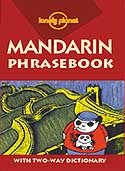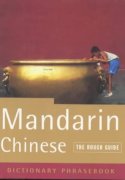Yunnan province is an area of great cultural and linguistic diversity.
Many of the minority people living in Yunnan do not speak Mandarin as
a first language, and some don't speak Mandarin well at all. For
example, many Tibetans living in Xianggelila speak the local Tibetan
dialect as a first language. This dialect is unique to the area, and
dialects from as nearby as Deqin are mutually unintelligable. Adding
to the melee is the fact that the Chinese normally spoken in Yunnan is
based on the Kunming dialect, which is itself based on, but not the
same as, Mandarin Chinese. From a practical point of view though, you
will still best be able to communicate with the people here using
Mandarin Chinese.
We are collecting here some basic phrases which you may find useful
when travelling through China. Feel free to print this page out and
use it while communicating. Sometimes, it may be difficult to get the pronunciation of a particular phrase correct, and pointing at the Chinese characters
can sometimes be a more effective way of getting your meaning across.
We've marked in bold or italics some corresponding parts of each
phrase in English, Pinyin and Chinese. For the most part, if you
want to replace one of these segments in English, you simply replace
the corresponding segment in Chinese as well with the right word from
a dictionary, for example.
A key point to remember is to not be afraid of trying to say things.
In most travelling situations, the person (ticket seller, hotel staff)
you're talking to is only expecting to hear one of a handful of
different words, and with this context, it's possible to mispronounce
something fairly drastically and still be understood.
This phrasebook is under construction. If you'd like to know how to
say something generally useful in Mandarin that's not listed here,
please suggest it to us.
Basic Phrases (and Responses)
| Hello | níhăo | 你好 |
| How are you? [Good/Okay/Bad] |
níhăoma? [wŏ hén hăo/hái kéyĭ/wŏ bù hăo] |
你好吗? [我很好/还可以/我不好] |
| Bye | zàijiàn | 再见 |
| Thank you [You're welcome]
| xièxiè [búkèqi]
| 谢谢 [不客气] |
| Excuse me (sorry) [No Problem] | duìbúqì [méiguānxì] | 对不气 [没关系] |
| Excuse me (I have a question) | qĭngwèn | 请问 |
| Where's the toilet? | cèsuŏ zài nálĭ? | 厕所在哪里? |
| How much? (money) | duōshăo qián? | 多少钱? |
| This | zhèige | 这个 |
| That | nèige | 那个 |
| Shall we go?/Let's go | zŏuba? | 走吧? |
| I don't understand (what you said) | wŏ tīngbùdŏng | 我听不懂 |
| Can you speak English? |
nĭ huì jiăng yīngwén ma? |
你会讲英文吗? |
| Please give me a pair of chopsticks. | qĭng géi wŏ yī shuāng kuàizi | 请给我一双筷子 |
| Please give me two bottles of beer. | qĭng géi
wŏ liăng píng píjĭu | 请给我两瓶啤酒 |
Basic Generic Responses
| I don't want it (this, that, these, those) | búyào | 不要 |
| Yes/I agree/I heard you | èn (pronounced "uh or uhn", 4th tone) | 嗯 |
Numbers
There are two forms of the number "two" (2) in Mandarin. The first
one, èr (二), is used when reciting telephone numbers, counting from 1
to 10, and for the tens and digits places in large numbers like "two
thousand two hundred twenty two". The other form, liăng (两), is used
when counting anything (2 minutes, 2 yuan, 2 bottles of beer, 2
people), as well as the hundreds and greater places in large numbers
in colloquial speech.
| 0 | líng | 〇 or 零 |
| 1 | yī | 一 |
| 2 (number) | èr | 二 |
| 2 (things) | liăng | 两 |
| 3 | sān | 三 |
| 4 | sì | 四 |
| 5 | wŭ | 五 |
| 6 | lìu | 六 |
| 7 | qī | 七 |
| 8 | bā | 八 |
| 9 | jĭu | 九 |
| 10 | shí | 十 |
| 11 | shíyī | 十一 |
| 12 | shíèr | 十二 |
| 13 | shísān | 十三 |
| 27 | èrshíqī | 二十七 |
| 100 | yībăi | 一百 |
| 101 | yībăilíngyī | 一百零一 |
| 110 | yībăiyīshí | 一百一十 |
| 114 | yībăiyīshísì | 一百一十四 |
| 1000 | yīqiān | 一千 |
| 2222 | liăngqiānliăngbăièrshíèr | 两千两百二十二 |
Internet
Time
| Now | xiànzài | 现在 |
| Today | jīntiān | 今天 |
| 2:34 pm | xìawŭliăngdiănsānshísì | 下午两点三十四 |
| 11:00 am | shàngwŭshíyīdiănzhōng | 上午十一点钟 |
| Tomorrow | míngtiān | 明天 |
| Yesterday | zuótiān | 昨天 |
| Day after tomorrow | hòutiān | 后天 |
| Day before yesterday | qiántiān | 前天 |
| 3 days later (3 days from now) | sāntiān yĭhòu | 三天以后 |
| 2 months before (2 months ago)
| liăng gè yuè yĭqián | 两个月以前 |
| December | shíèryuèfen | 十二月份 |
| November 28 | shíyīyuèèrshíbā | 十一月二十八 |
| November 28 (generally when written) | shíyīyuèèrshíbārì | 11月28日 |
| November 28 (optionally when spoken) | shíyīyuèèrshíbāhào | 十一月二十八号 |
Money
| How much is this? | zhèige duōshăo qián? | 这个多少钱? |
| Cheapest (literally: most cheap) |
zuìpíanyíde |
最便宜的 |
| Get money (out of a bank account/using credit card) |
qŭqián |
取钱 |
Toilets
| Men/Women | nán/nǚ | 男/女 |
| Toilet Paper | wèishēngzhĭ | 卫生纸 |
Transportation
| I want to go to Kunming |
wŏ yào qù kūnmíng |
我要去昆明 |
| Train station |
huŏchē zhàn |
火车站 |
| Hard seat (train) |
yìngzuŏ |
硬坐 |
| Soft seat (train) |
ruănzuŏ |
软坐 |
| Hard sleeper (train) |
yìngwò |
硬卧 |
| Soft sleeper (train) |
ruănwò |
软卧 |
| Public Bus |
gonggongqiche |
公共汽车 |
| Taxi |
dishi |
的士 |
Accommodation
| Hotel |
fàndiàn/jĭudiàn/bīn'guăn |
饭店/酒店/宾馆 |
| Hostel |
kèzhàn/lǚguăn |
客栈/旅馆 |
| Single Room |
dānrénfáng |
单人房 |
| Double Room |
shuāngrénfáng |
双人房 |
| Dormitory Room |
duōrénfáng |
多人房 |
Departures
| Take care |
baozhong |
保重 |
| Safe Trip |
yilu ping'an |
一路平安 |
You May Hear
| Welcome! |
huānyíng guānglín |
欢迎光临 |
| Is the food okay? [Yes/No] |
hăochī ma? [hăochī/bùhăochī] |
好吃吗?[好吃/不好吃] |
| Do you understand? (meaning) [Yes/No] |
míngbái ma? [míngbái/bùmíngbái] |
明白吗? [明白/不明白] |
| Do you understand? (listening) [Yes/No] |
tīngdedŏngma? [tīngdedŏng/tīngbùdŏng] |
听得懂吗? [听得懂/听不懂] |
| Foreigner |
lăowài |
老外 |
| Good friend |
hăopéngyŏu |
好朋友 |
| Smoke? [Thanks/I don't smoke] |
xī yān ma? [xièxiè/wŏbúxīyān] |
吸烟吗? [谢谢/我不吸烟] |
You May See
| Entrance |
rùkŏu |
入口 |
| Exit |
chūkŏu |
出口 |
| Car (on a train) |
chē |
车 |
| Center (as in Shopping Center) |
zhōngxīn |
中心 |
| China |
zhōngguó |
中国 |
| Road |
lù |
路 |
| Street |
jiē |
街 |
Recommended Phrasebooks
For those in the beginning stages of learning the language, or even
just hoping to get around in China, a good Mandarin phrasebook is
essential. I have personally used the
Lonely
Planet Mandarin Phrasebook, 4th Edition , which was indispensable
on my first trip to China.
, which was indispensable
on my first trip to China.
In particular, I recommend against the
5th Edition, simply because it has replaced romanizations in
Pinyin, standard in any other modern book on Chinese (including the
4th edition), with its own incompatible homegrown variant.
I haven't used the Rough
Guide Mandarin Chinese, 2nd Edition in the "field", but I have flipped through
it. The translations looked good, and phrases are organized
alphabetically by "key word". This organization is better suited
toward your communicating things to Chinese people than the other way
around.
in the "field", but I have flipped through
it. The translations looked good, and phrases are organized
alphabetically by "key word". This organization is better suited
toward your communicating things to Chinese people than the other way
around.
, which was indispensable
on my first trip to China.

in the "field", but I have flipped through
it. The translations looked good, and phrases are organized
alphabetically by "key word". This organization is better suited
toward your communicating things to Chinese people than the other way
around.


Neueste Kommentare